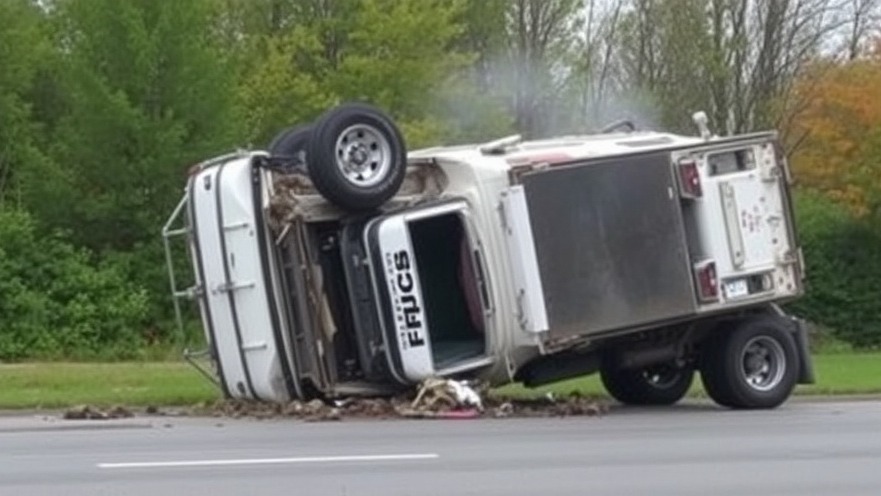
Tragic Loss: Murdo Firefighter Dies Responding to Grass Fire
In a heartbreaking incident that has left the small community of Murdo, South Dakota in mourning, a firefighter tragically lost his life on Saturday evening while attempting to respond to a grass fire north of Draper. The crash occurred around 6:50 p.m. when the firefighter, who was driving a 1989 Ford Fire Tender, veered off the roadway and rolled the vehicle, resulting in his ejection and immediate death at the scene.
The South Dakota Highway Patrol has reported that the firefighter, a 37-year-old male, was not wearing a seat belt at the time of the crash. While the details surrounding this incident are still under investigation, the community's sadness is palpable, with many locals sharing their condolences and support for the firefighter's family.
A Community Unites in Grief
The immediate impact of this tragedy is evident in the community's response. A GoFundMe page has been established to assist the family during this difficult time, reflecting the solidarity and support of the people of Murdo. Local residents often come together in times of need, building a strong network of assistance that underscores the values held dear in small towns.
The Dangers Faced by First Responders
This incident shines a light on the risks that firefighters face daily, especially when responding to urgent calls like grass fires, which are prevalent in rural areas during dry seasons. According to the National Fire Protection Association (NFPA), firefighters face multiple hazards including vehicle accidents, which are a significant cause of fatalities in the line of duty.
As many communities across America grapple with the impacts of climate change, incidents involving grass fires are expected to rise. Firefighters need to be equipped with not only physical gear but also strategies to ensure their safety on the road. The dangers they face call for a deeper understanding and appreciation from the public about their role in protecting lives and property.
Wider Implications for Public Safety
This tragic event could prompt discussions at both local and federal levels regarding public safety standards for first responders. The need for improved vehicle safety standards and training for emergency personnel might also gain attention, as local governments evaluate how to protect their workers better while they serve the community.
In addition, with increasing wildfires, there is an urgent need for improved infrastructure and fire prevention strategies, especially in areas prone to such risks. The government’s role in supporting local fire departments with appropriate funding and resources becomes crucial.
National Safety Trends and Local Action
While this incident is a localized tragedy, it mirrors a larger pattern observed across the nation. According to recent statistics from the National Fire Administration, firefighter fatalities have seen notable trends over the past few years linked to vehicle crashes and fire-related emergencies. By examining these patterns, leaders in both public safety and government can work towards mitigating future occurrences.
Citizens are encouraged to express their appreciation for local firefighters and support fire prevention initiatives. Awareness and community engagement can lead to significant changes that promote safety and efficiency in firefighting efforts.
In Honor of Our Heroes
As the community of Murdo copes with the loss of a dedicated firefighter, discussions about safety, heroism, and community spirit continue to arise. This incident serves as a sobering reminder of the great sacrifices those in public safety make each day. In remembering the fallen firefighter, it’s essential to reflect on the value of life and the importance of ensuring that we do everything we can to protect each other, whether through community support or advocacy for improved safety measures.
A call to action resonates strongly: communities across America should come together, engage in conversations about fire safety, and take steps toward supporting those who rush into danger to keep us safe. Let us not wait for tragedies to mobilize our efforts but act proactively in fostering a culture of safety and support for our first responders.
 Add Element
Add Element  Add Row
Add Row 



Write A Comment